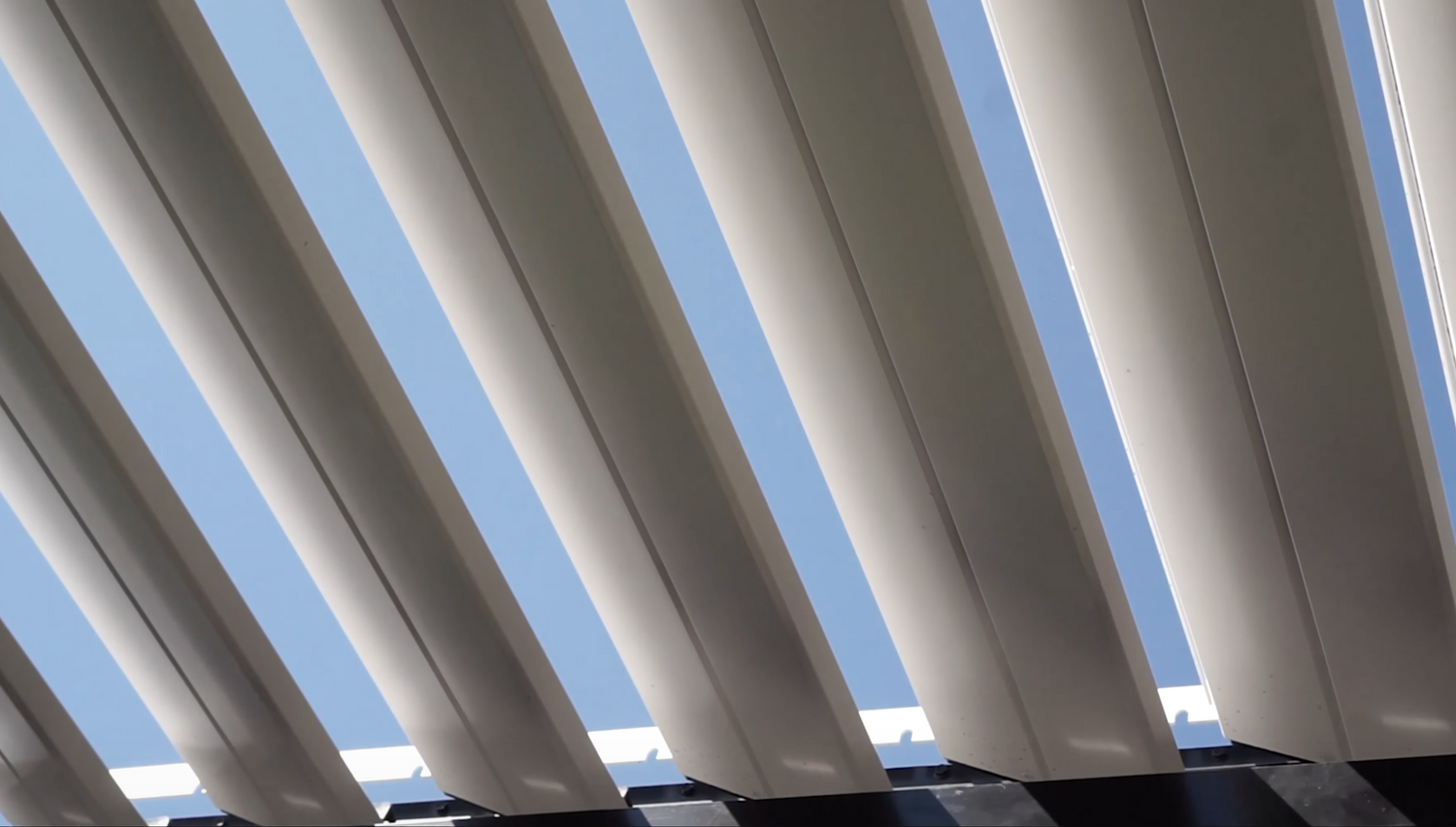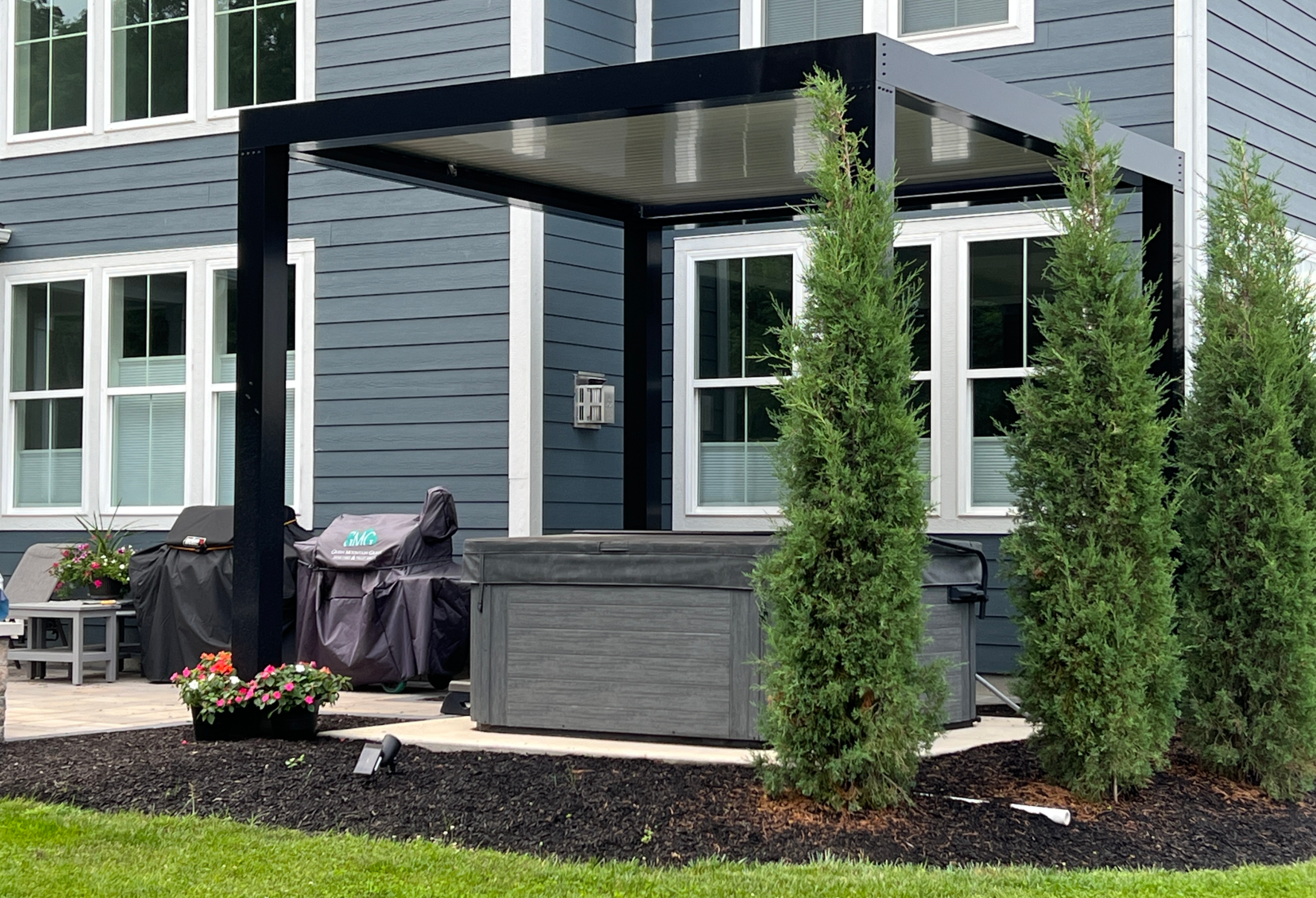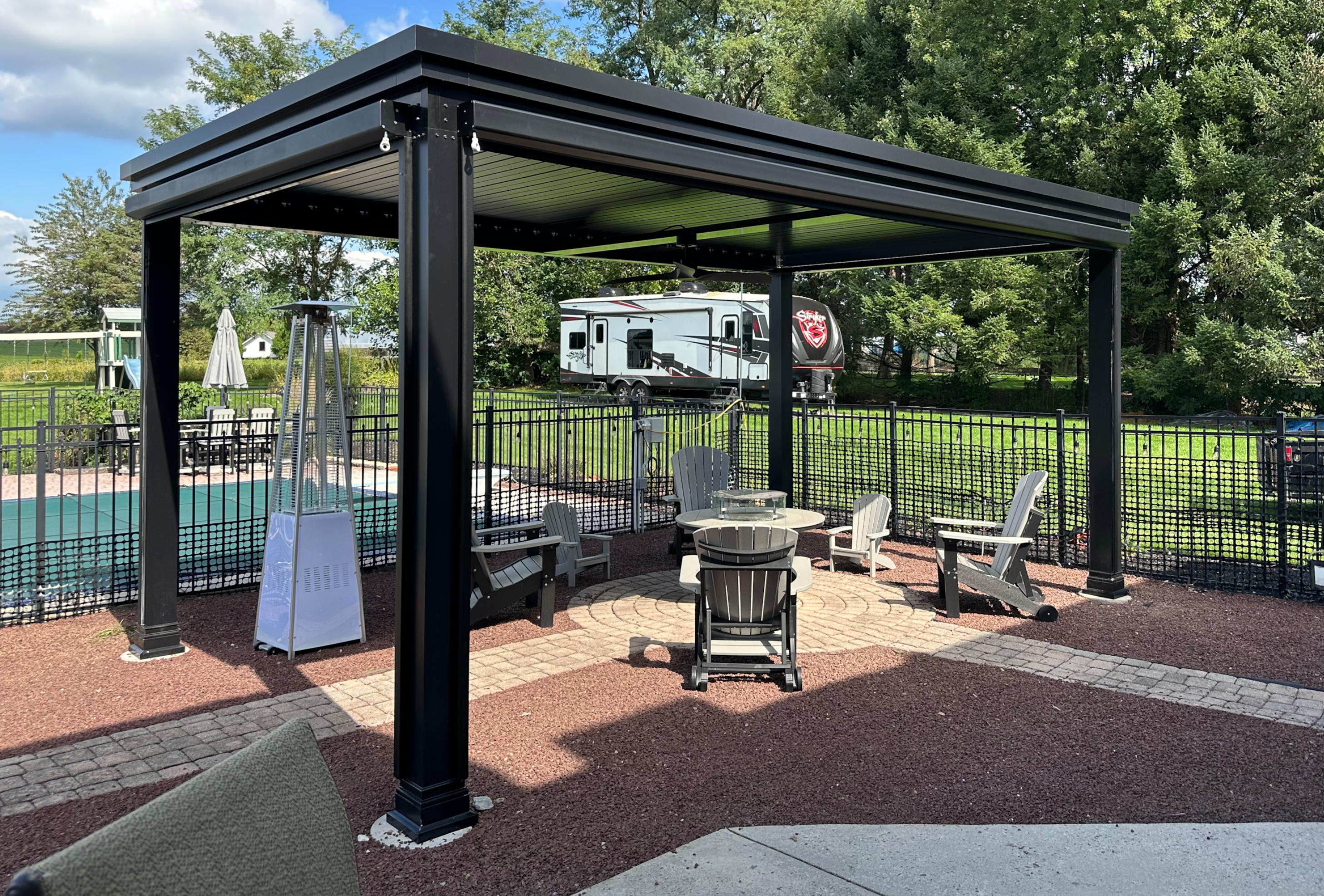Yes, in short, a pergola does provide shade. It is typically a 4 post, or more structure that has some type of roof system. The most common type of roof system would be a louvered system with slats or "louvers" that open and shut.
Table of Contents
- What is the definition of a Pergola?
- What are the common uses of a Pergola?
- Common features on Pergolas
- Pergolas as Aesthetically pleasing structures
- How do pergolas provide shade?
- What are some of the factors that can influence shade coverage?
- Pros and Cons of Pergolas in providing shade
- Enhancing Pergolas for better Shade
- Conclusion
What is the definition of a Pergola?
Let's start with what the definition of a pergola is. A pergola is generally an outdoor structure most characterized and covered with trained or climbing plants.
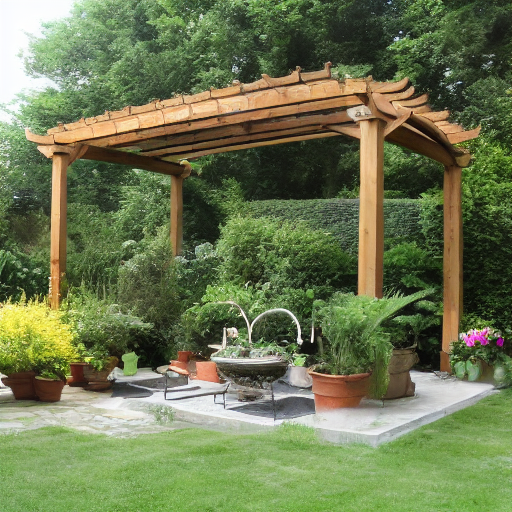
A pergola is typically found in gardens, parks or yards and it usually consists of 4 or more vertical posts and several crossbeam structures at the top.
Pergolas are meant to enhance outdoor space and serve as a positive framework for growth of vines and other plants for aesthetic purposes as well as functional purposes. The open design allows for great ventilation and natural light while also offering shade and natural light for various types of outdoor activities.
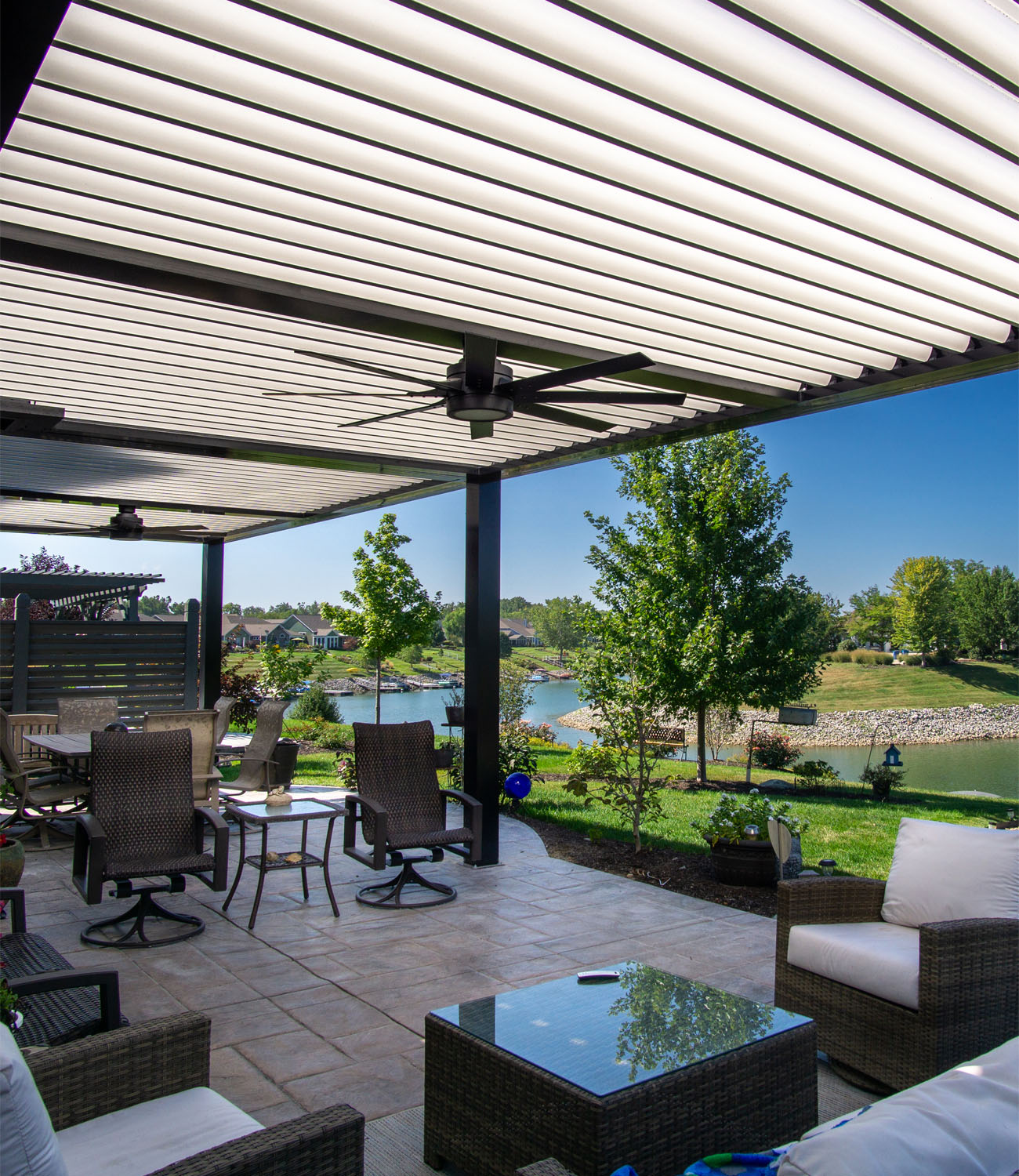
What are the common uses of a Pergola?
A pergola can offer several different uses in your outdoor space. It can serve as a shaded, focal point of a backyard and can absolutely enhance the overall visual appeal of any outdoor space.
It can be used for sun and rain protection. Shade is oftentimes a key reason why people would put up a pergola in their outdoor living space. If trees, plants and other shrubs are not naturally available, a pergola can provide shade in a very sunny space.
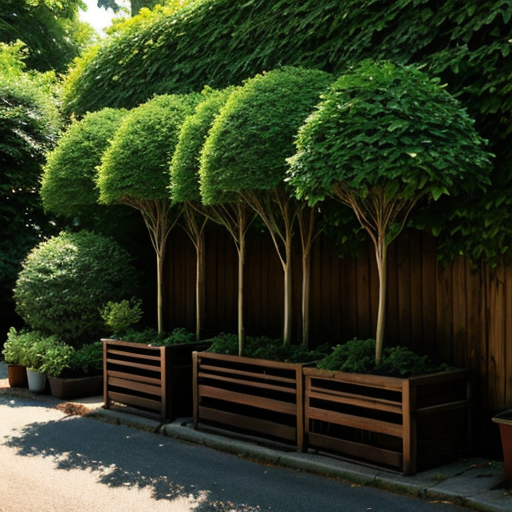
Outdoor events and entertaining are a couple of common uses of a pergola. A Pergola can serve as a versatile place to host events, gatherings or other outdoor parties.
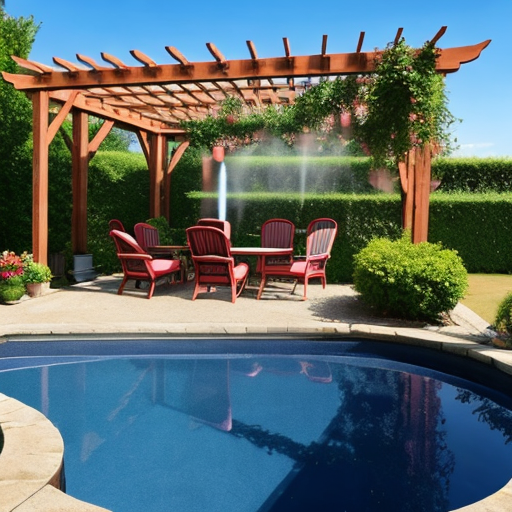
A Permanent, fixed pergola structure can also enhance the overall value of a property thus making the outdoor space more attractive to potential buyers.
Common features on Pergolas
Most of the common features with a pergolas are as follows: Vertical posts or pillars, cross beams, rafters or lattice panels, decorative end caps, climbing plants or vines, an arch or entryway, freestanding or attached and optional screens or curtains, are just a few of the common pergola features.
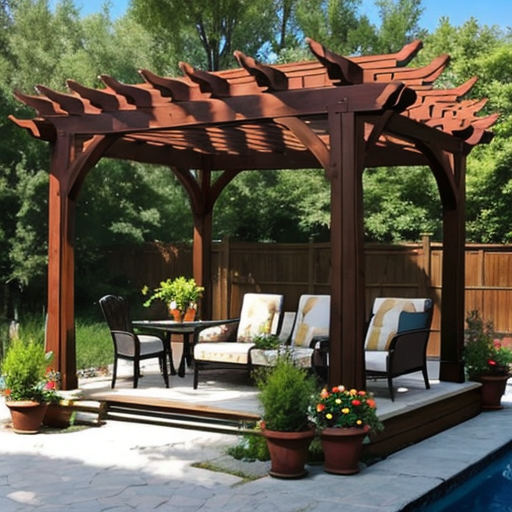
Pergolas as Aesthetically pleasing structures
Pergolas are often built to fit in with the outdoor space and nature that they are near. Pergolas support the growth of climbing plants and vines in an outdoor space. A pergola can provide shade ideas in many spaces. With sharp, clean lines and bright, flowery plants to go along with, pergolas are a wonderful addition to any outdoor space.
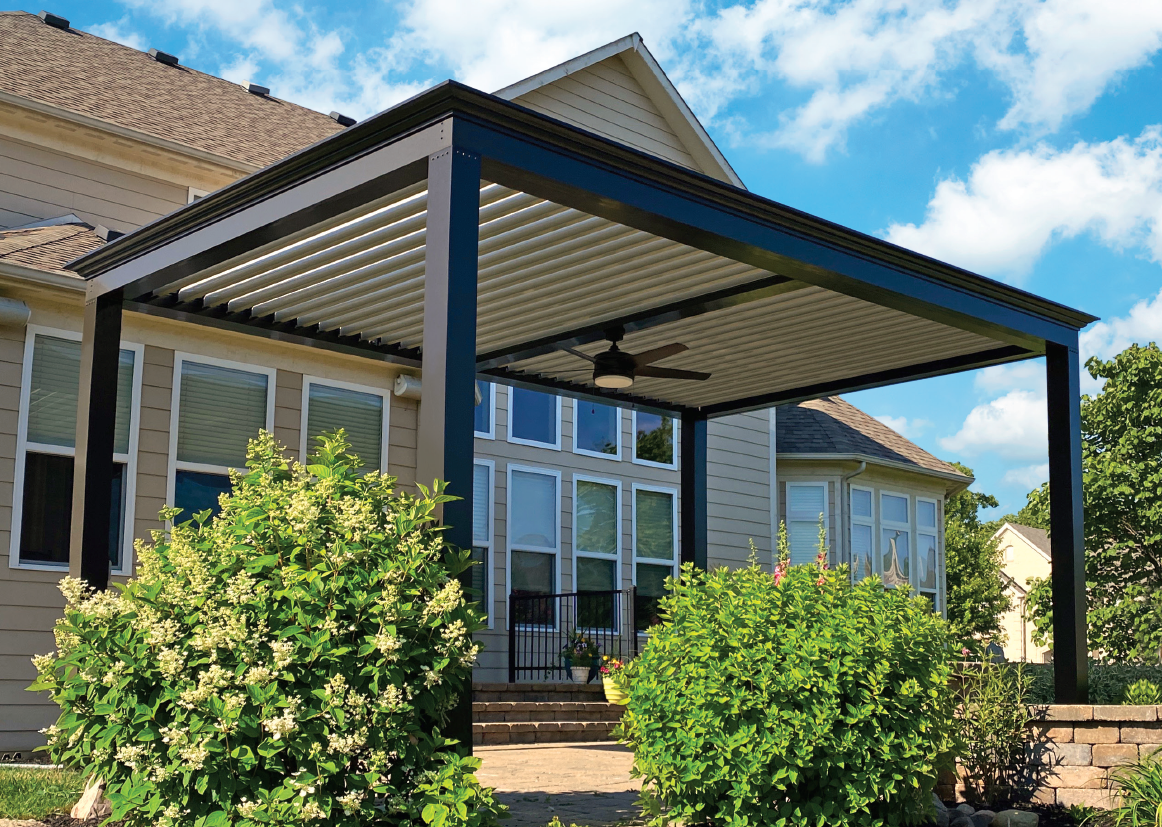
How do pergolas provide shade?
Pergolas provide shade in a number of different ways. Many pergolas have a louvered roof system with louvers that run a certain span on the pergola. They can be adjusted to keep the sun and rain out.
Making sure to place the pergola on the best side of the house to best maximize the amount of shade is very important. You are also able to drape the walls or put up screens or curtains around your pergola, adding additional shading options.
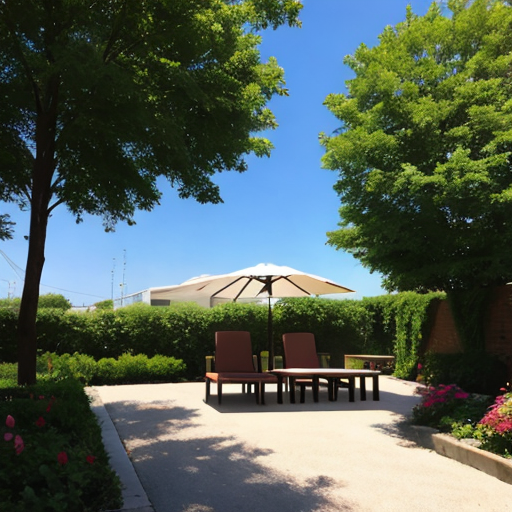
Also allowing the hanging plants and climbing plants to move up the walls and roof will only add shade to your outdoor space. This will provide the laid back aesthetic you may be looking for.
Natural shade through an open roof design
With an open roof design, natural shading can be obtained. As long as your pergola is oriented correctly, you can avoid that harsh afternoon sun. The slats and beams at the top can, by themselves, do a great job of offering shade. You do not get near as much sun protection with this open concept as you would with a motorized louvered roof system, but it is a good option, nonetheless.
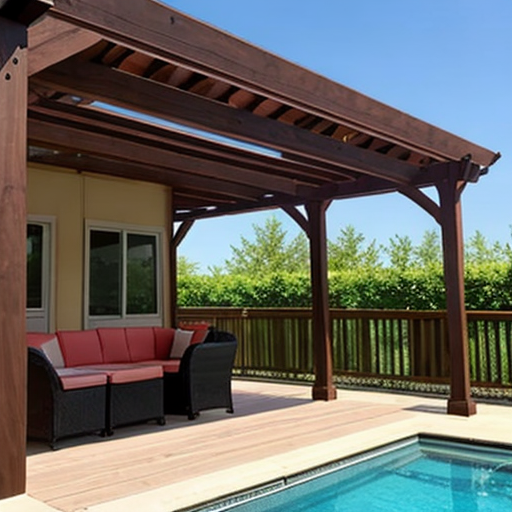
Additional shade options: Canopies, Curtains and Plants
There are several additional pergola options when it comes to shade and UV resistance. With more of an open roof floorpan, many people choose to let vines and climbing plants take root and move up the posts and create shade at the top of the structure. These plants can help to block sunlight and create a shaded area
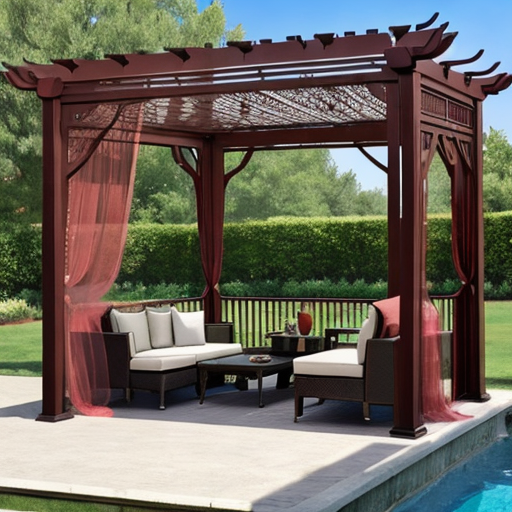
What are some of the factors that can influence shade coverage?
There are a few factors that can influence the amount of shade and coverage received. These are mainly the way that the pergola is oriented and which direction the sunlight is coming from at a certain part of the day.
The type of roof material can greatly impact or change the way pergolas provide shade. A Pergola roof can be left mostly open or can have metal louvers that run the span. Obviously, with louvers on roof system, the pergola shade will be more dramatic.
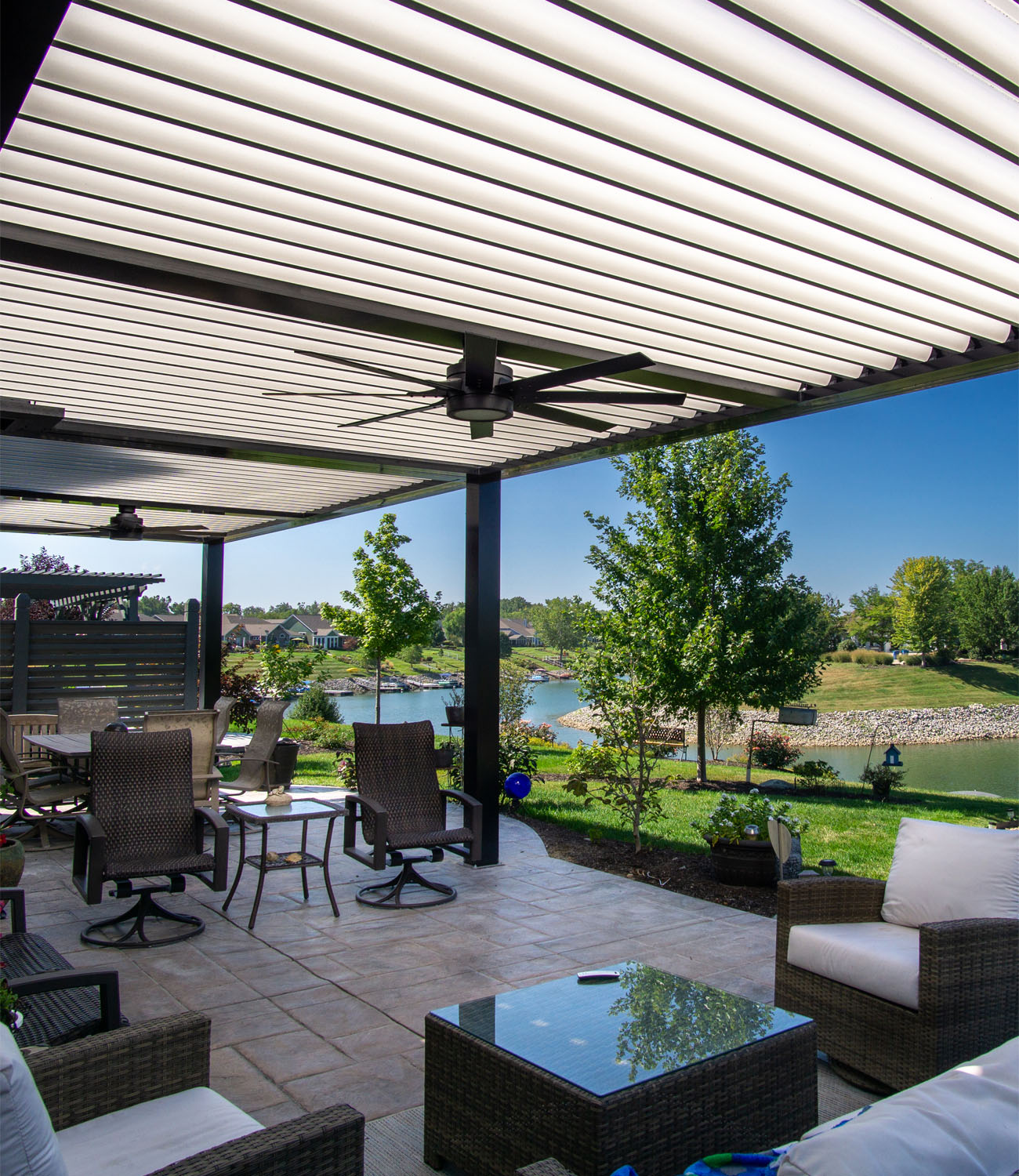
Pros and Cons of Pergolas in providing shade
There are times when there can be cons or negatives to a pergola providing shade. Perhaps the pergola has a roof or look that doesn't fit into the environment around it. Perhaps a more "wood" look pergola, as opposed to metal or vinyl, would have been a better option.
Some of the Pros to providing shade from your pergola are: Hosting and entertaining friends and family, while keeping them comfortable and offering complete protection against the sun. People who are sensitive to higher temps and UV rays will be able to enjoy your pergola much more when they provide shade.
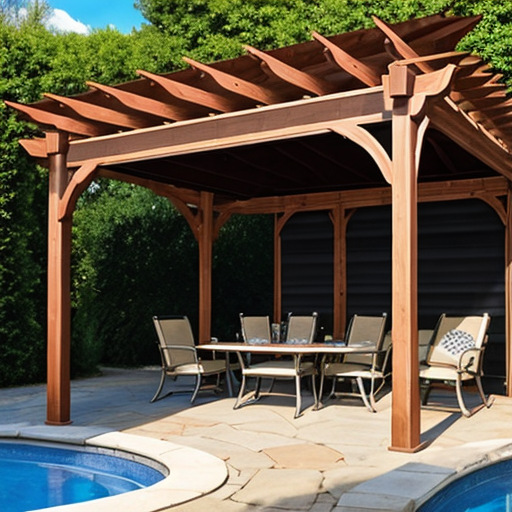
Enhancing Pergolas for better Shade
As we've discussed, there are many ways to enhance your pergola and add more protection. Your retractable canopy can have climbing plants, flowers and vines that can climb up and atop your pergola. There is also rain protection, as well as dappled shade from various shrubs and plants that can help. A standard pergola can add lighting and create a little shade where needed.
Conclusion
There are several different ways that pergola provide shade. The trick to adding shading is also making sure that it is aesthetically pleasing the eye and molds cleanly with the environment around it. Most Pergolas have a roof structure or other pergola tops. It is also paramount that while trying to create shadier weather conditions, we also need to make sure we are allowing air to pass freely, in and out of the structure.



